Former Pakistan army chief and president Pervez Musharraf passed away on Sunday after a protracted battle with a rare health condition called amyloidosis, local media reported.
Musharraf, who served as the army chief for almost nine years (1999-2008), became the 10th president of Pakistan in 2001 and held the position until early 2008, Dawn reported.
He was born in pre-partition Delhi on August 11, 1943. After the partition, his family settled in Karachi where he attended Saint Patrick's School. Later, he joined the Pakistan Military Academy at Kakul and graduated from the institution in 1964. He was subsequently commissioned in the Pakistan Army, Dawn reported.
His first battlefield experience came during the 1965 Indo-Pak war and he served in the elite Special Services Group (SSG) from 1966-1972. During the 1971 war with India, Musharraf was a company commander of an SSG commando battalion. After 1971, he continued to excel in several military assignments and gained rapid promotions within the army, Dawn reported.
In October 1998, he was appointed the chief of army staff by the then prime minister Nawaz Sharif. A year later, he overthrew Sharif's government in a bloodless coup and later became the country's president.
On October 12, 1999, troops took over the Prime Minister House after Sharif prevented Musharraf from landing at Karachi airport upon his journey back from Sri Lanka.
On finding out, Musharraf declared a state of emergency, suspended the Constitution and assumed the role of chief executive. There were no organised protests against the coup within Pakistan but the measure was thoroughly criticised by the international community. In June 2001, Musharraf became the president of Pakistan, Dawn reported.
The 9/11 attacks took place just a few months after Musharraf became the president. He subsequently entered Pakistan into an alliance with the US in the latter's 'war on terror', a decision the former military rule has defended on several occasions.
Musharraf held a general election in October 2002 during which he allied himself with Pakistan Muslim League-Quaid (PML-Q), Muttahida Qaumi Movement and an alliance of six religious parties called Muttahida Majlis-i-Amal. With this election, Musharraf was able to gather the required two-thirds majority to pass the 17th Amendment which helped legitimise the 1999 coup as well as several other measures adopted by him, Dawn reported.
In January 2004, Musharraf won a confidence vote by both houses of the parliament and the four provincial assemblies by a majority of 56 per cent and was declared elected in a process disputed by his political opponents.
In March 2007, Musharraf suspended the then chief justice Iftikhar Muhammad Chaudhry after the latter refused to resign allegedly over abusing his office. The incident unleashed violent protests by lawyers and civil society activists and Musharraf's handling of the events adversely impacted his position. On June 20, 2007, the Supreme Court reinstated the chief justice and declared Musharraf's suspension of the former as void.
However, the chief justice was again deposed when Musharraf imposed a state of emergency in the country on November 3, 2007. Within 25 days of the emergency in place, Musharraf resigned from his position of army chief, with General Ashfaq Pervaiz Kayani taking charge. Musharraf, who was still president at the time, finally lifted the emergency on December 15, 2007, Dawn reported.
After giving Musharraf the chance to voluntarily resign, the PPP-led coalition government at the centre - formed after the 2008 general elections - initiated a parliamentary procedure to impeach him. Musharraf initially refused to resign and the coalition began official proceedings for his ouster. He voluntarily left the post before the impeachment could be finalised.
Musharraf was also named in the cases pertaining to Benazir Bhutto's murder, Nawab Akbar Bugti's killing and the 'illegal confinement' of 62 judges after the November 2007 emergency. However, in March 2013, the Sindh High Court granted him protective bail in all three cases, Dawn reported.
Musharraf was barred from travelling abroad after his name was placed on the Exit Control List (ECL) on Apr 5, 2013. However, the ex-president's name was struck off the ECL by the interior ministry and he flew to Dubai on March 17, 2016 to "seek medical treatment" and never returned.
In September 2018, it emerged that he was "growing weaker rapidly" due to an unspecified illness. A month later, it was revealed that he was suffering from amyloidosis, which had affected his mobility. In March 2019, he had a reaction and needed hospitalisation, Dawn reported.

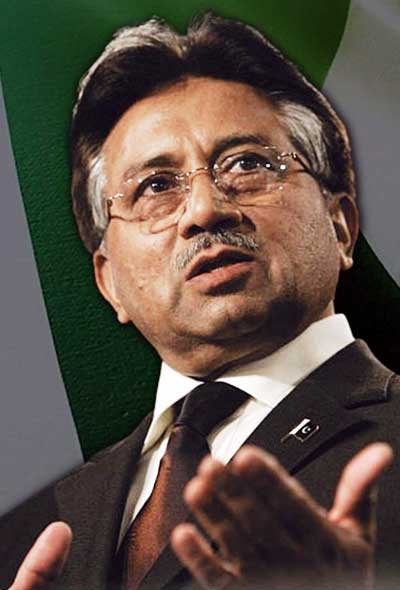
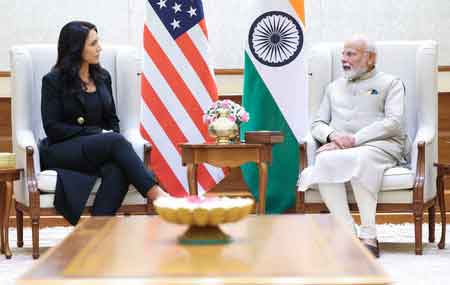
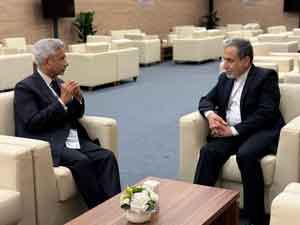
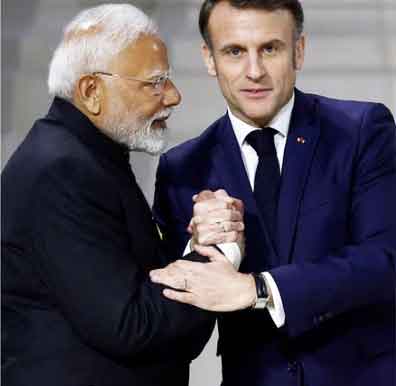
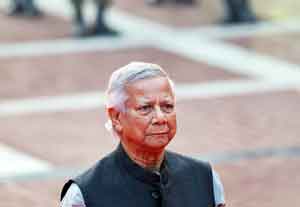


Tripura CM Saha holds key meeting with BJP, IPFT and TMP leaders
Tripura Chief Minister Manik Saha on Friday held an "important" meeting between the leaders of ruling BJP and its two allies – Tipra Motha Party (TMP) and Indigenous People's Front of Tripura (IPFT) and discussed various political and developmental issue, sources said.
HM Amit Shah's meeting sends a clear message: Not a drop of water to Pakistan
A high-level meeting was held on Friday at the residence of Union Home Minister Amit Shah regarding the suspension of the Indus Waters Treaty. The 45-minute meeting between the Home Minister and Union Jal Shakti Minister C.R. Patil focused on exploring ways to halt the flow of water to Pakistan.
Tripura: TMP chief urges Centre to adopt 'stronger policy' against B'desh
Ruling BJP’s ally Tipra Motha Party (TMP) founder-chief Pradyot Bikram Manikya Debbarma on Friday urged the Central government to adopt a stronger policy stance towards Bangladesh, accusing the neighbouring country of encouraging fundamentalist forces targeting Hindu minorities.
Pahalgam attack: More countries express solidarity with India, offer support in fight against terrorism
Ambassadors of Israel, Egypt, Argentina, and Nepal met External Affairs Minister (EAM) S. Jaishankar in New Delhi on Friday, expressing solidarity with India in its fight against terrorism following the heinous terror attack in Pahalgam.
Tripura CM directs SPs and DMs to remain vigilant about Pakistani nationals
Tripura Chief Minister Manik Saha on Friday directed the Superintendents of Police (SPs) of all eight districts to regularly share necessary inputs with the Chief Minister’s Secretariat regarding the presence of any Pakistani nationals in the state, officials said.
US supports India's 'hunt' for those behind 'horrific Islamist terrorist attack' in Pahalgam, says Gabbard
Tulsi Gabbard, Director of National Intelligence (DNI), on Friday said that the United States supports India's "hunt" for the perpetrators of the "horrific Islamist terrorist attack" in Pahalgam that took place earlier this week.
Tehran stands ready to 'forge greater understanding' between India and Pakistan: Iran FM Araghchi
Citing its good relations with both India and Pakistan, Iran on Friday said that it stands ready to "forge greater understanding" between New Delhi and Islamabad following the Pahalgam terror attack, earlier this week.
PM Modi's action will act as deterrent against any fresh attempts to harm India: Tripura CM
Tripura Chief Minister Manik Saha on Friday denounced the Pahalgam terror attack, asserting his staunch belief that Prime Minister Narendra Modi's decisive action will act as a strong deterrent against any future attempts by terrorists to harm India.